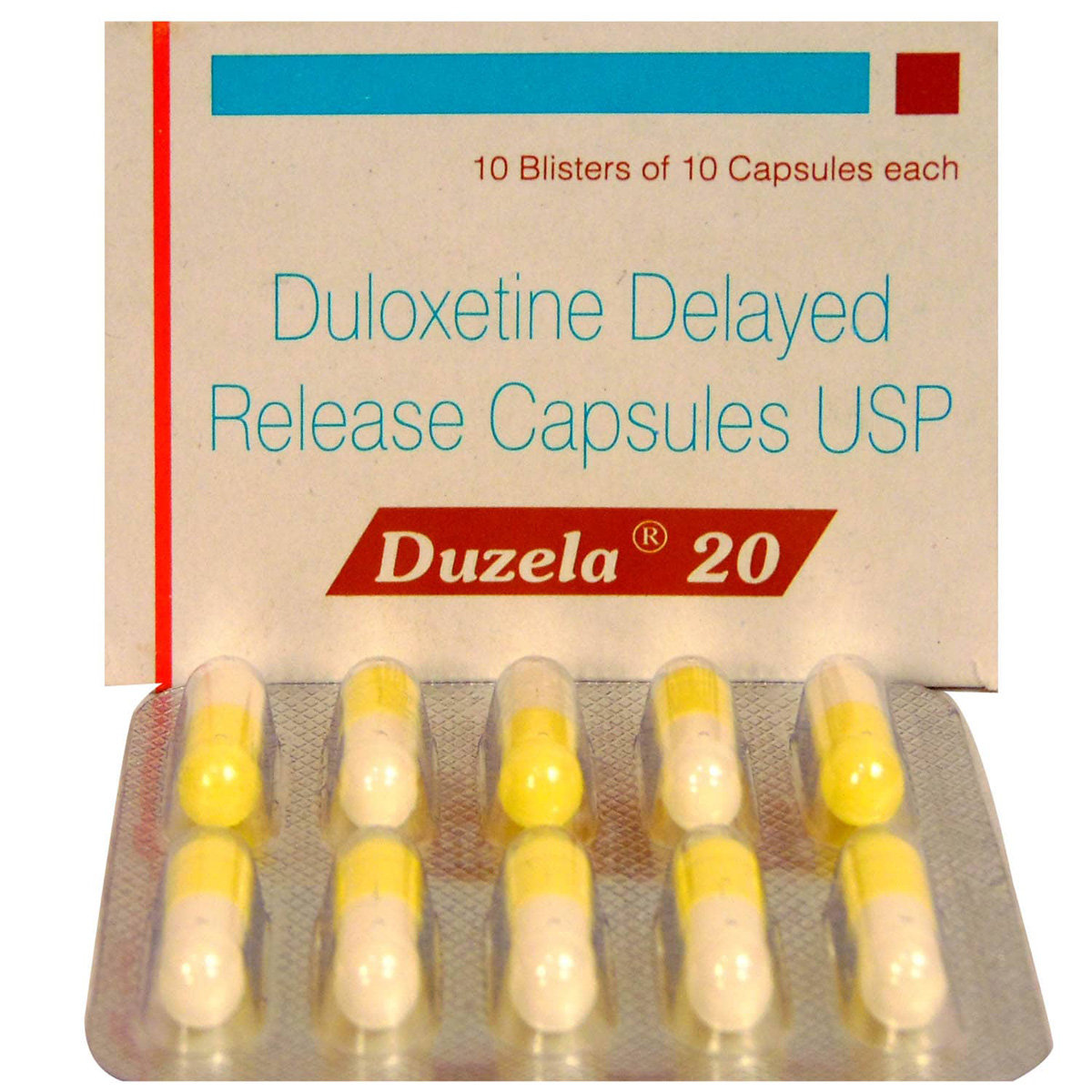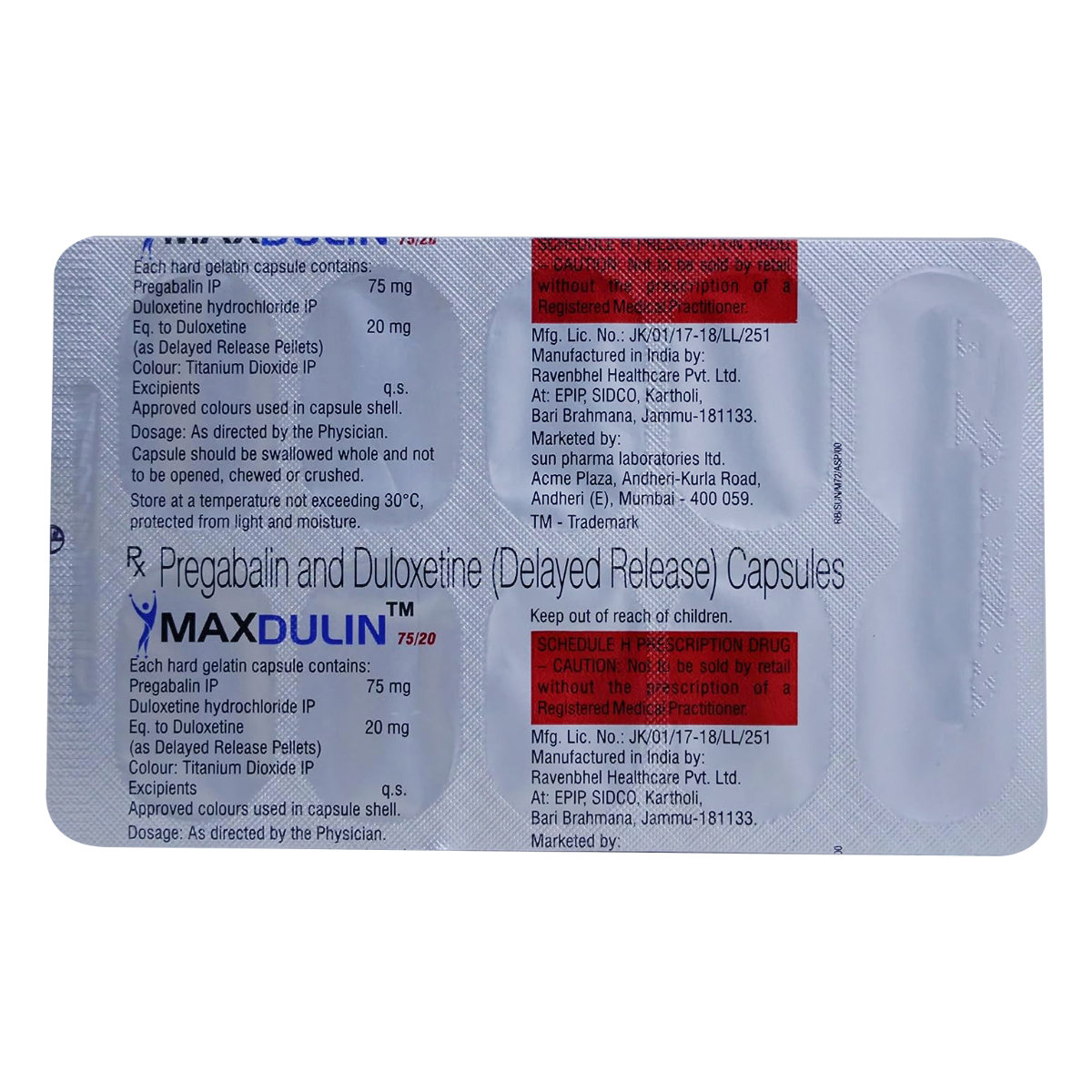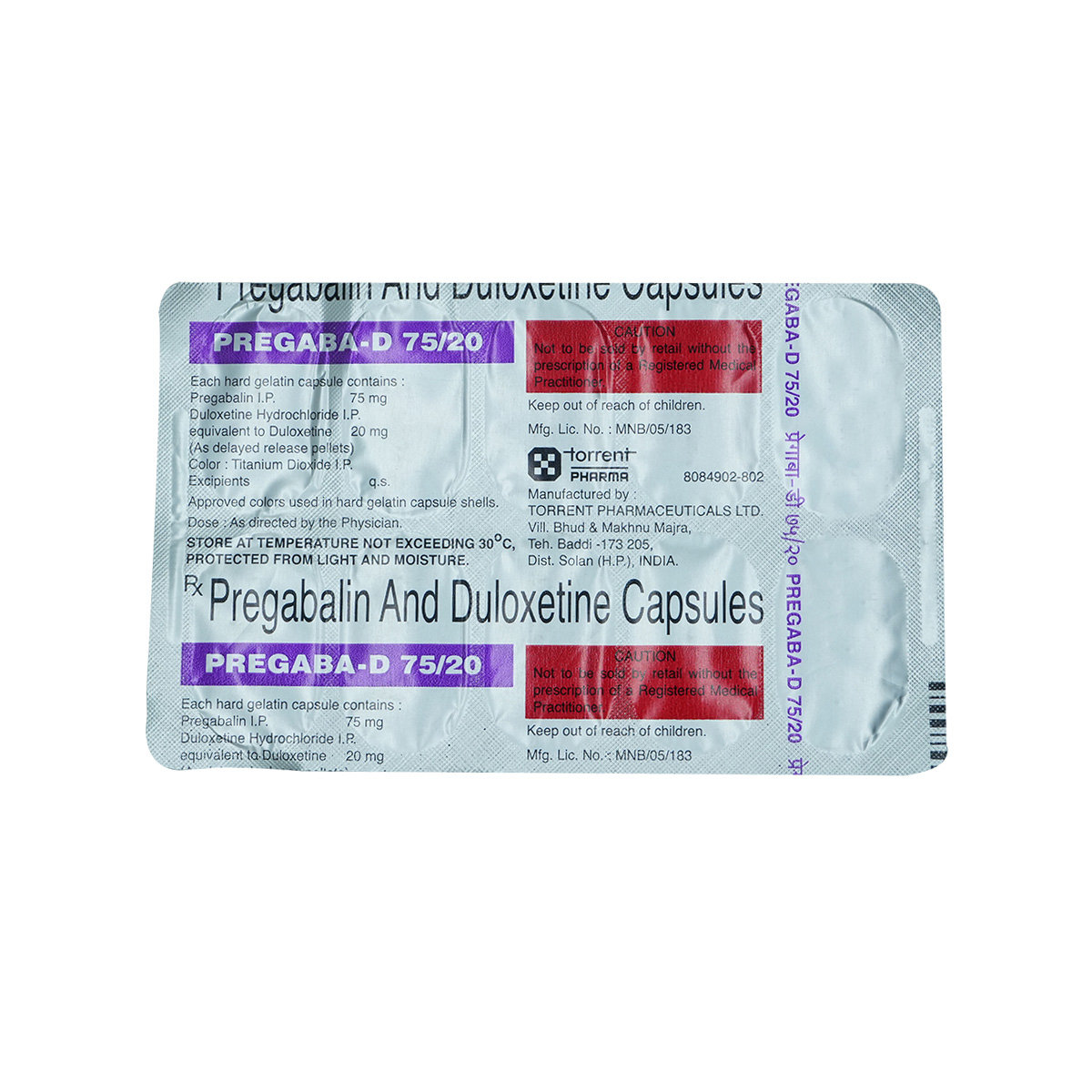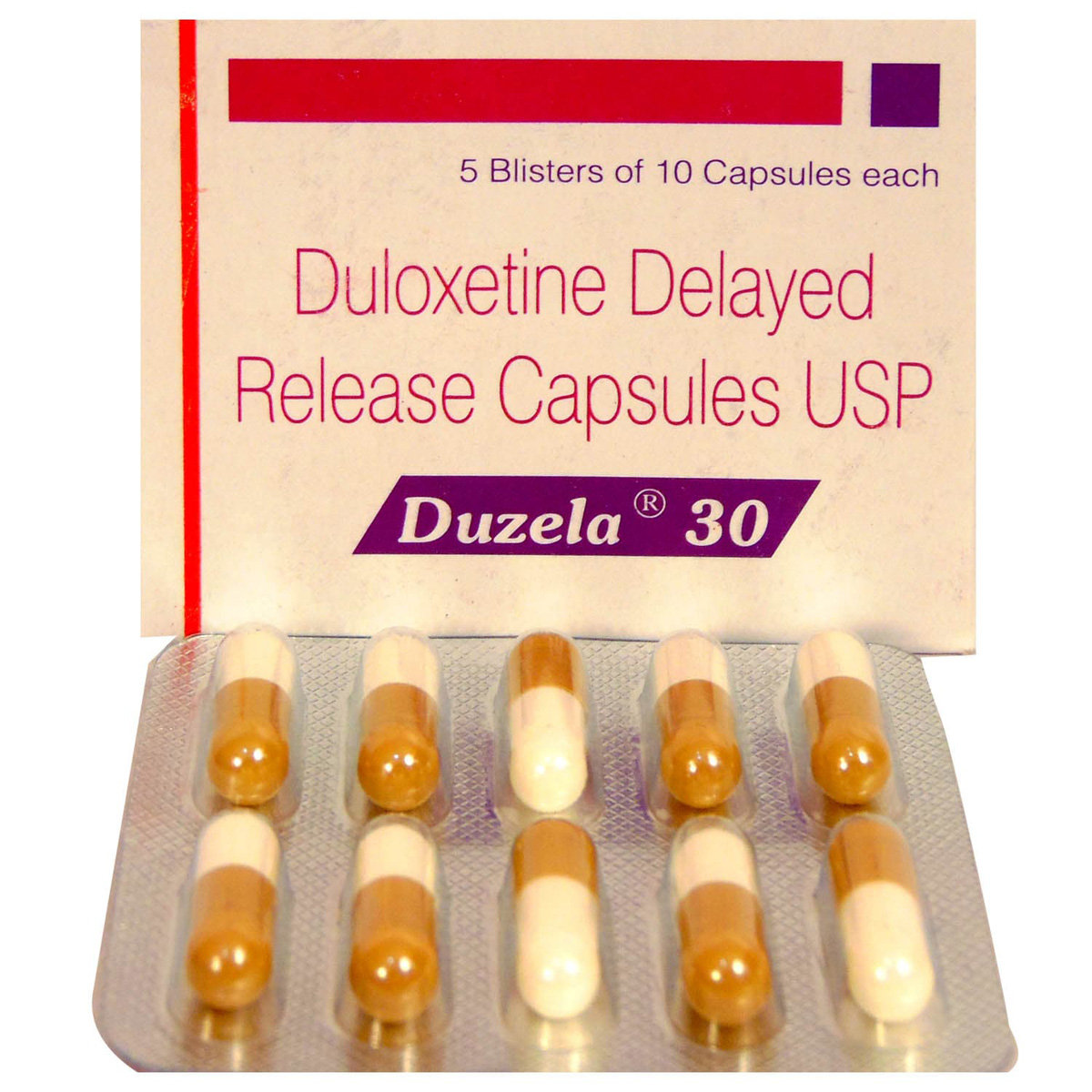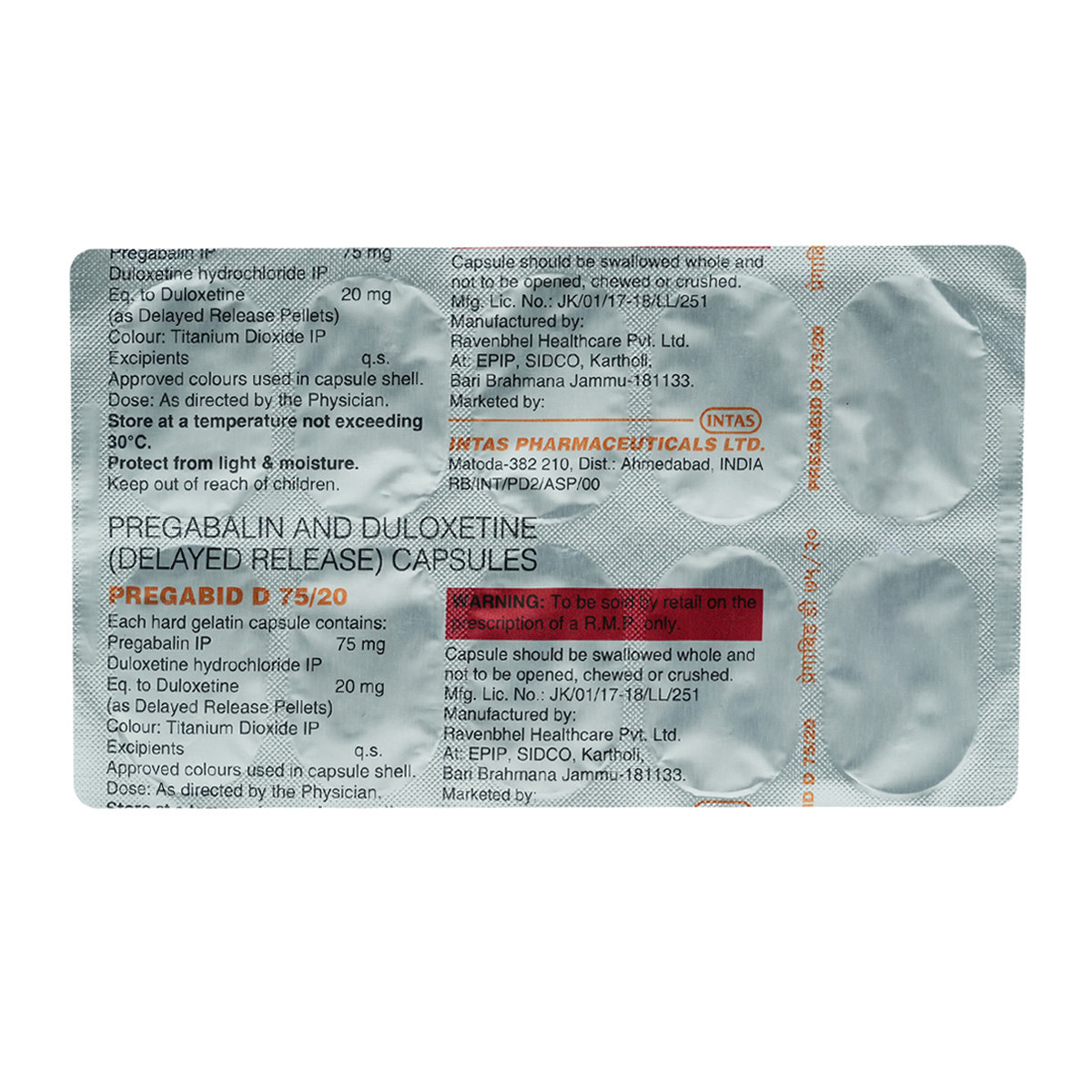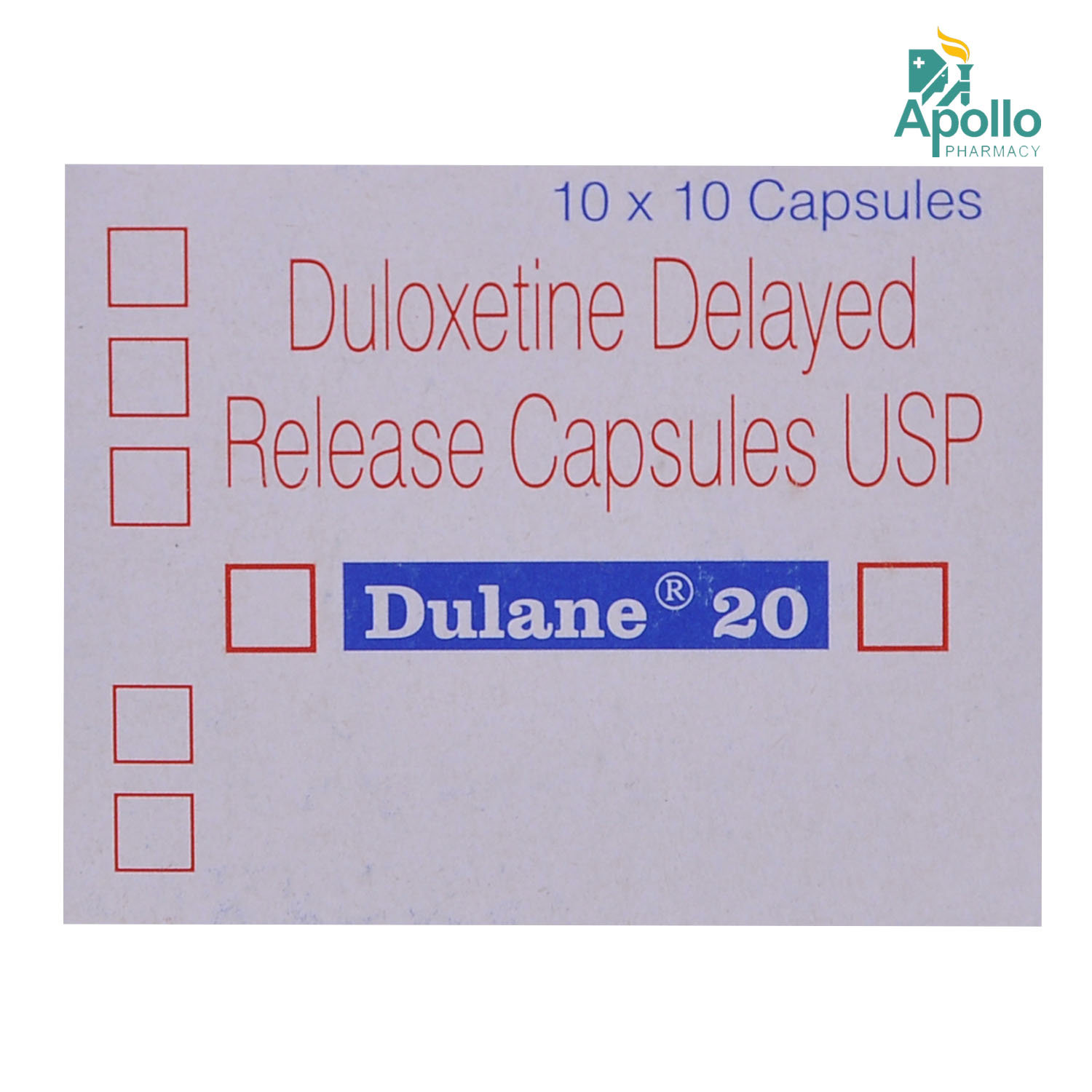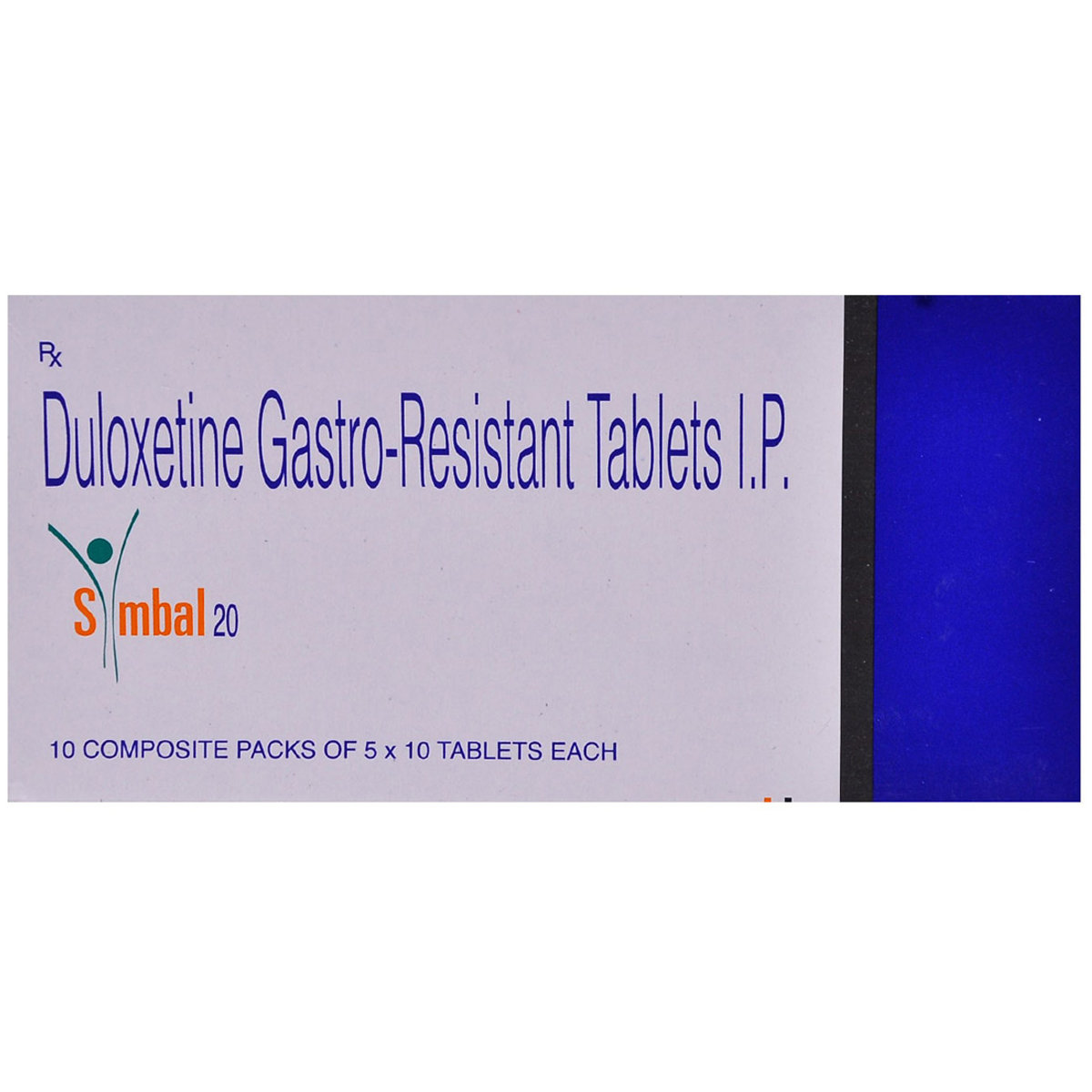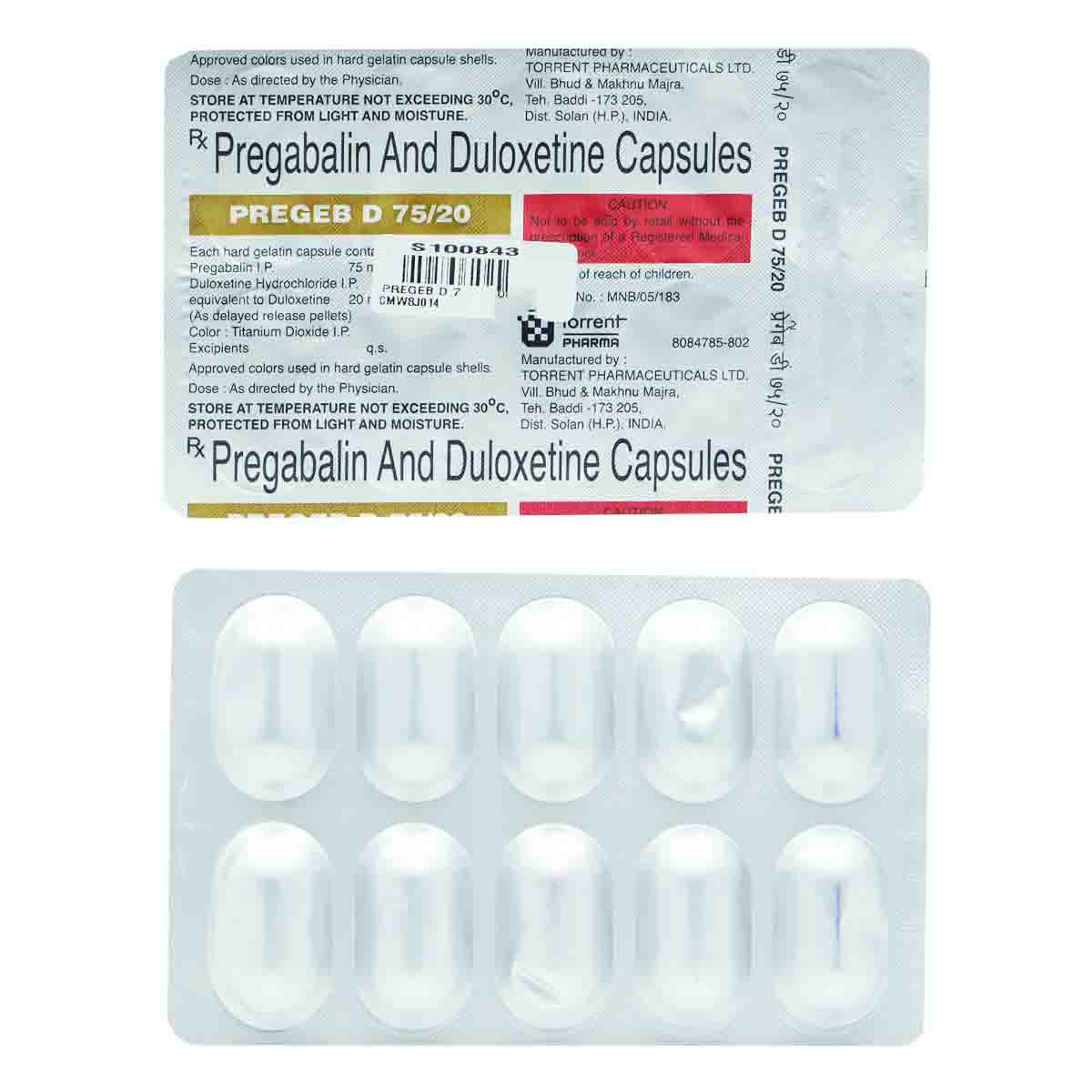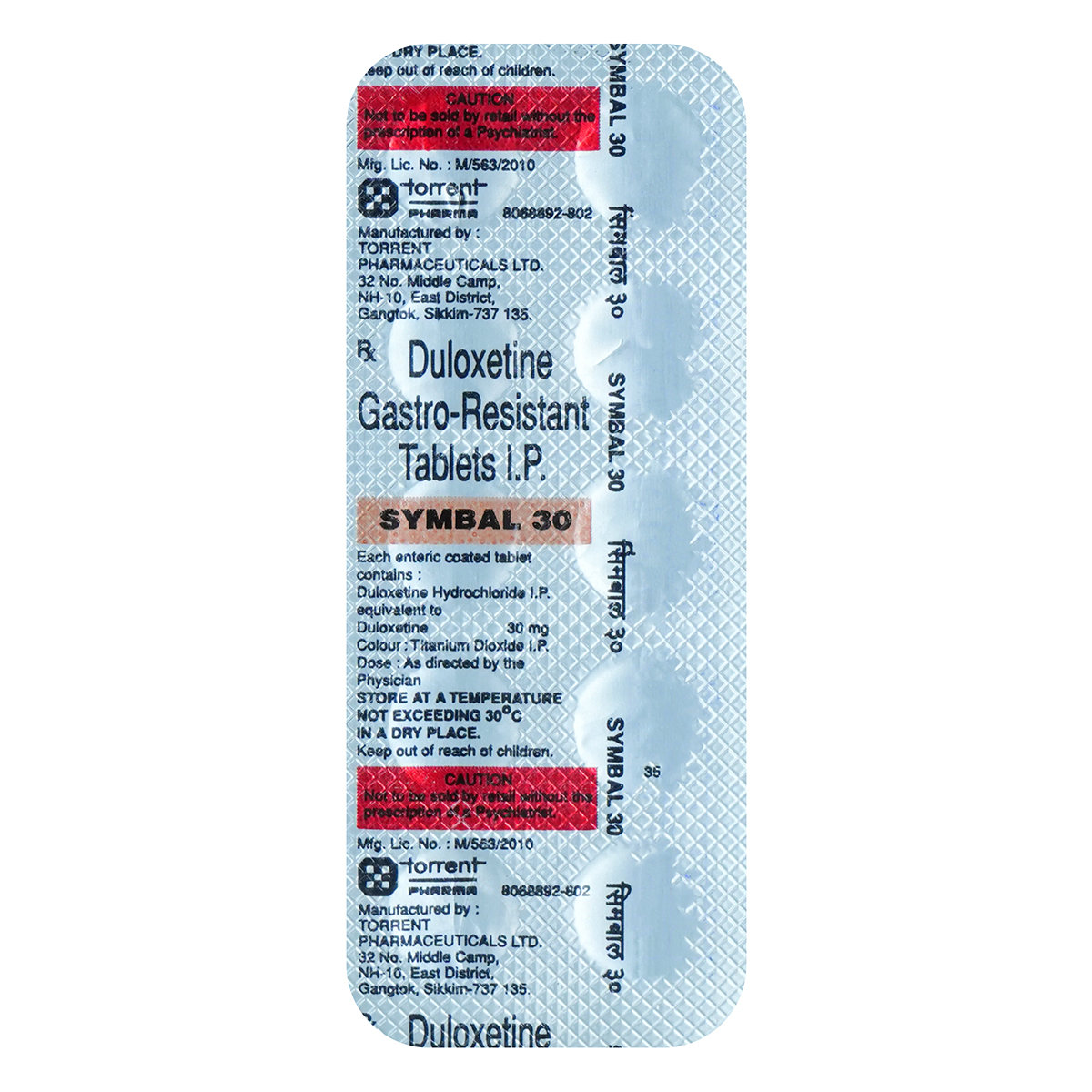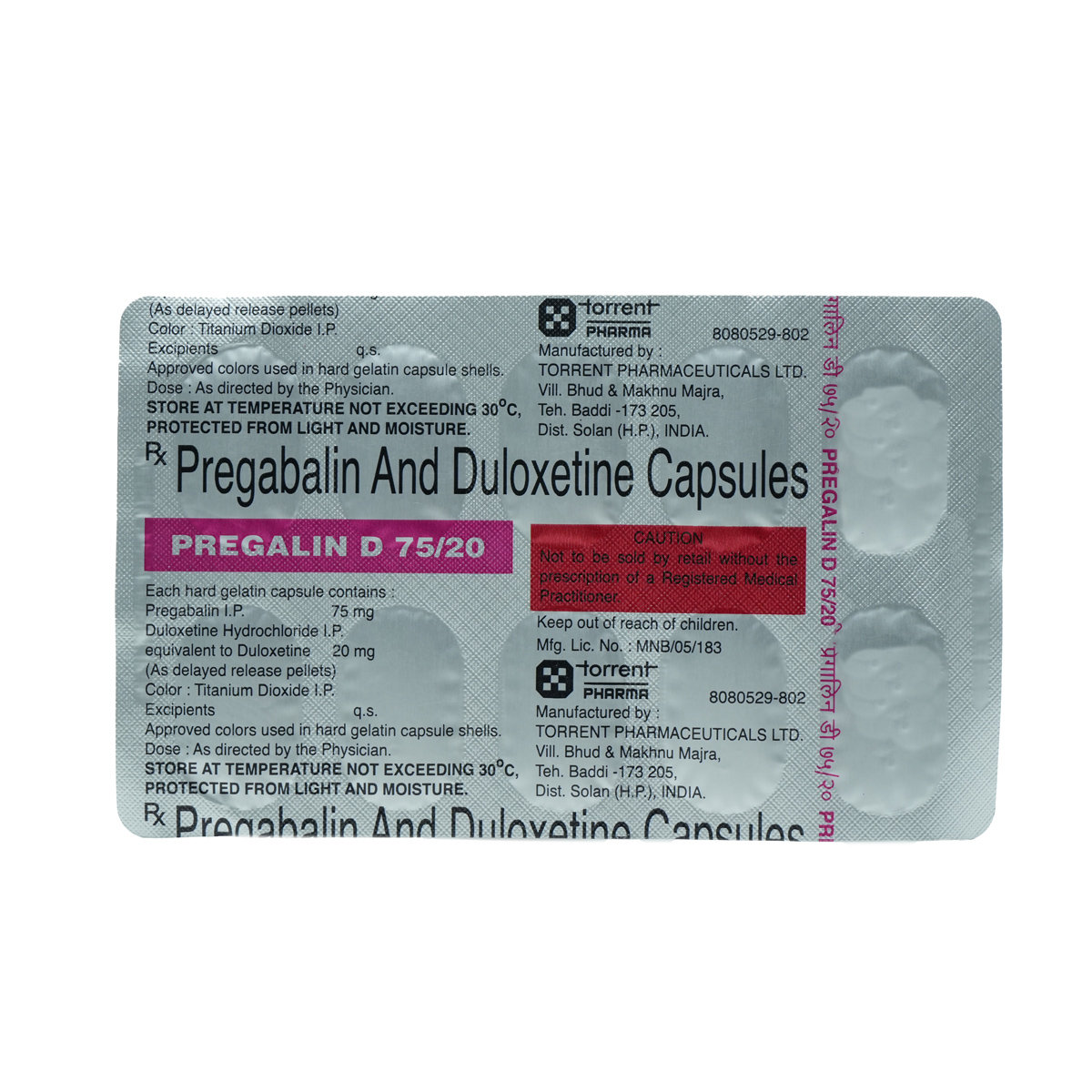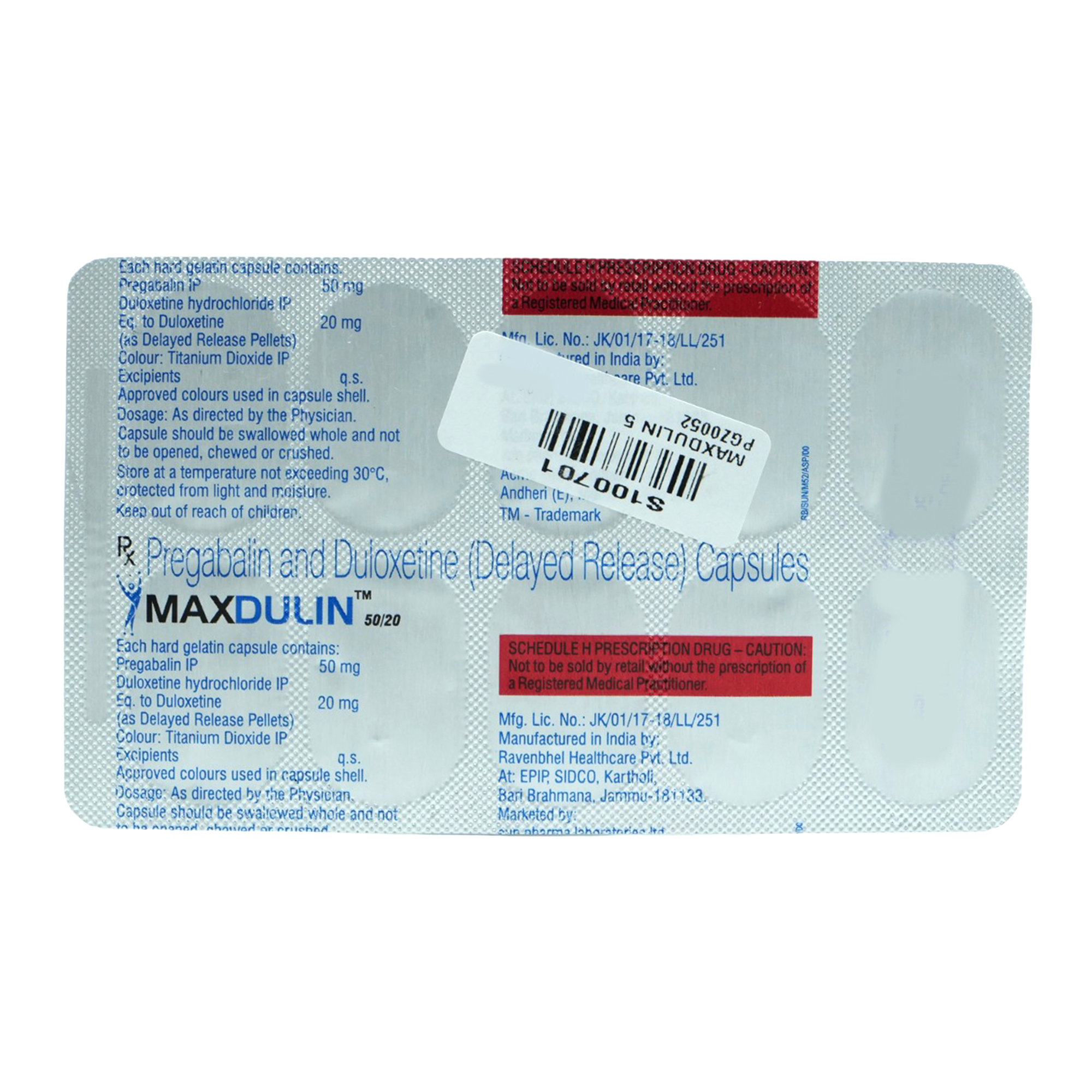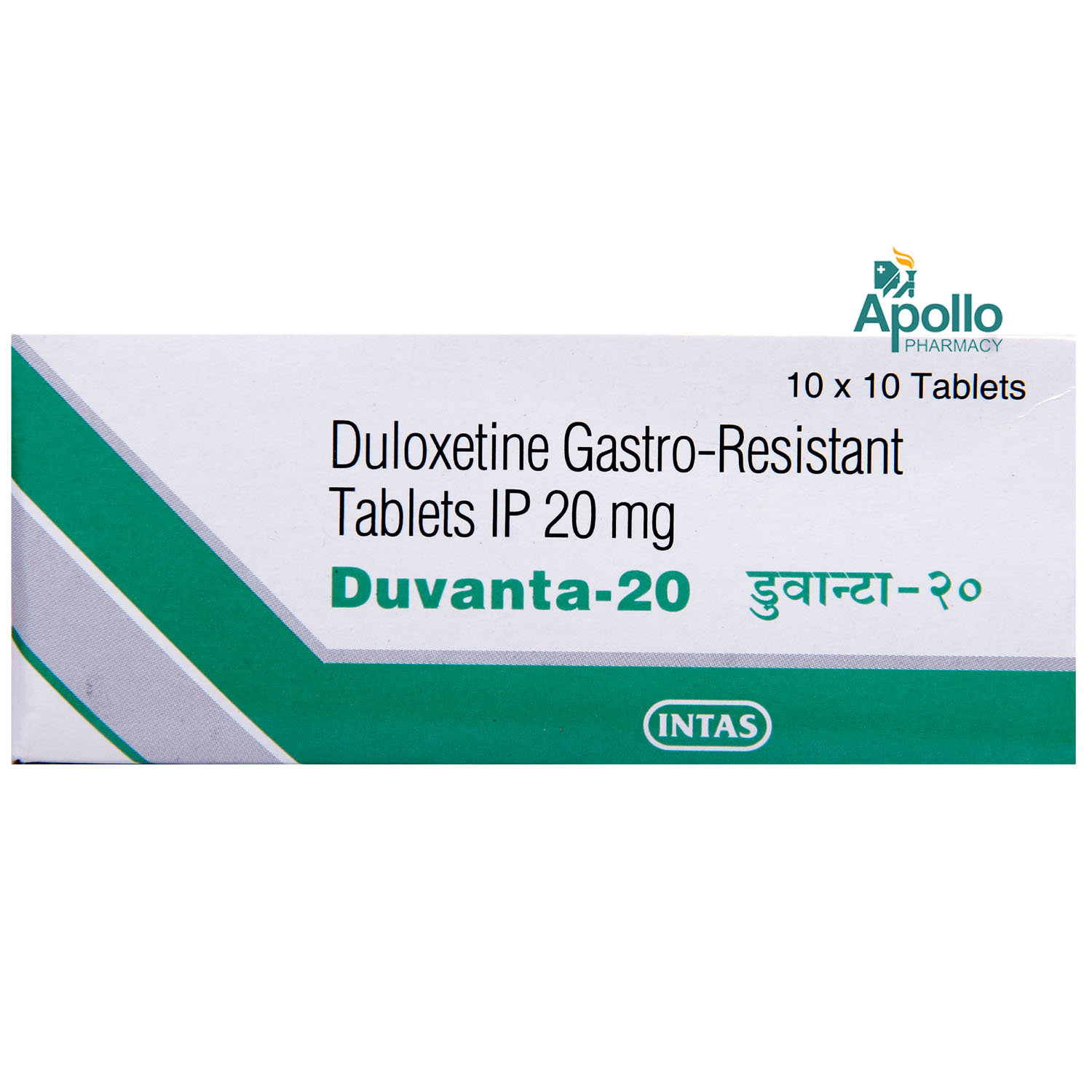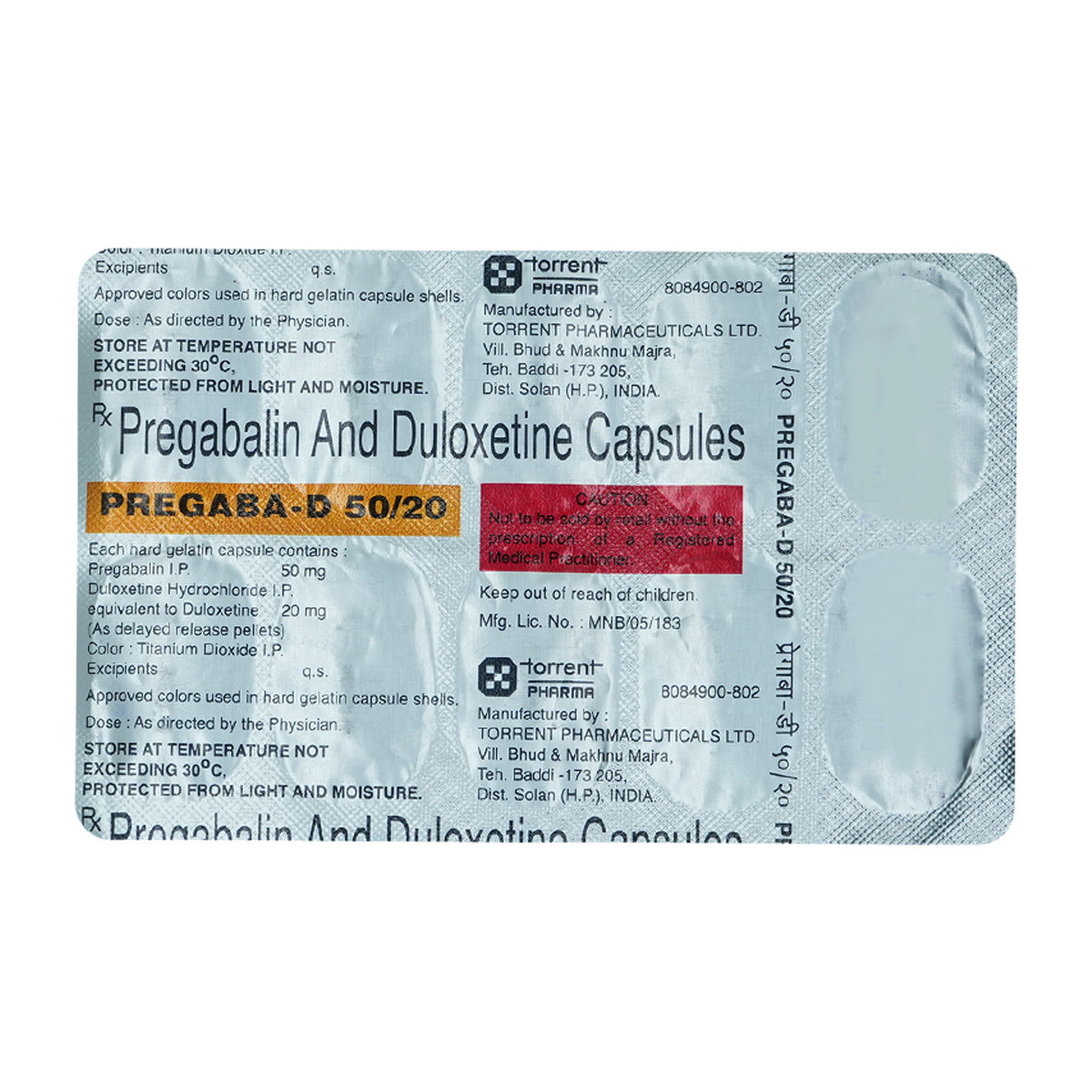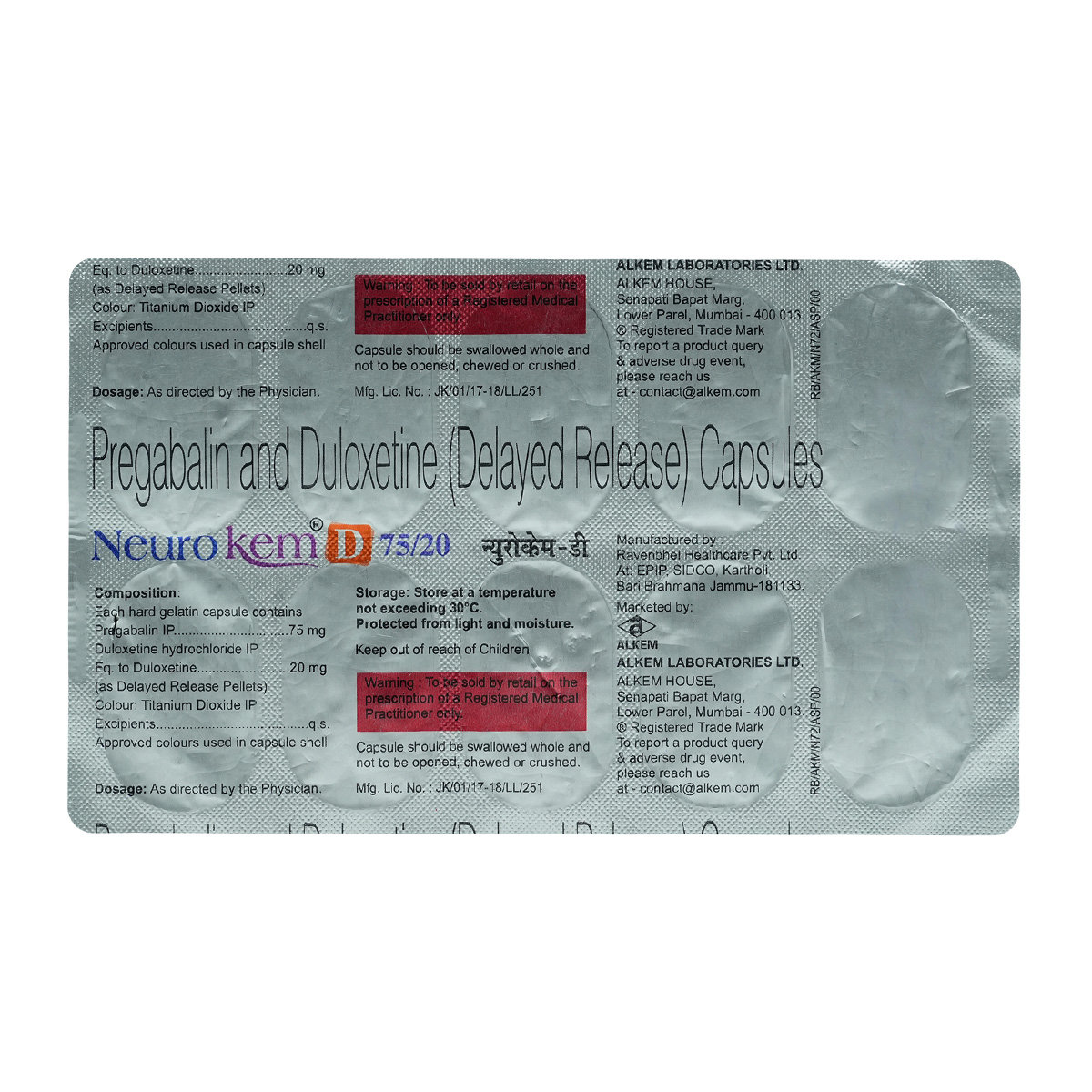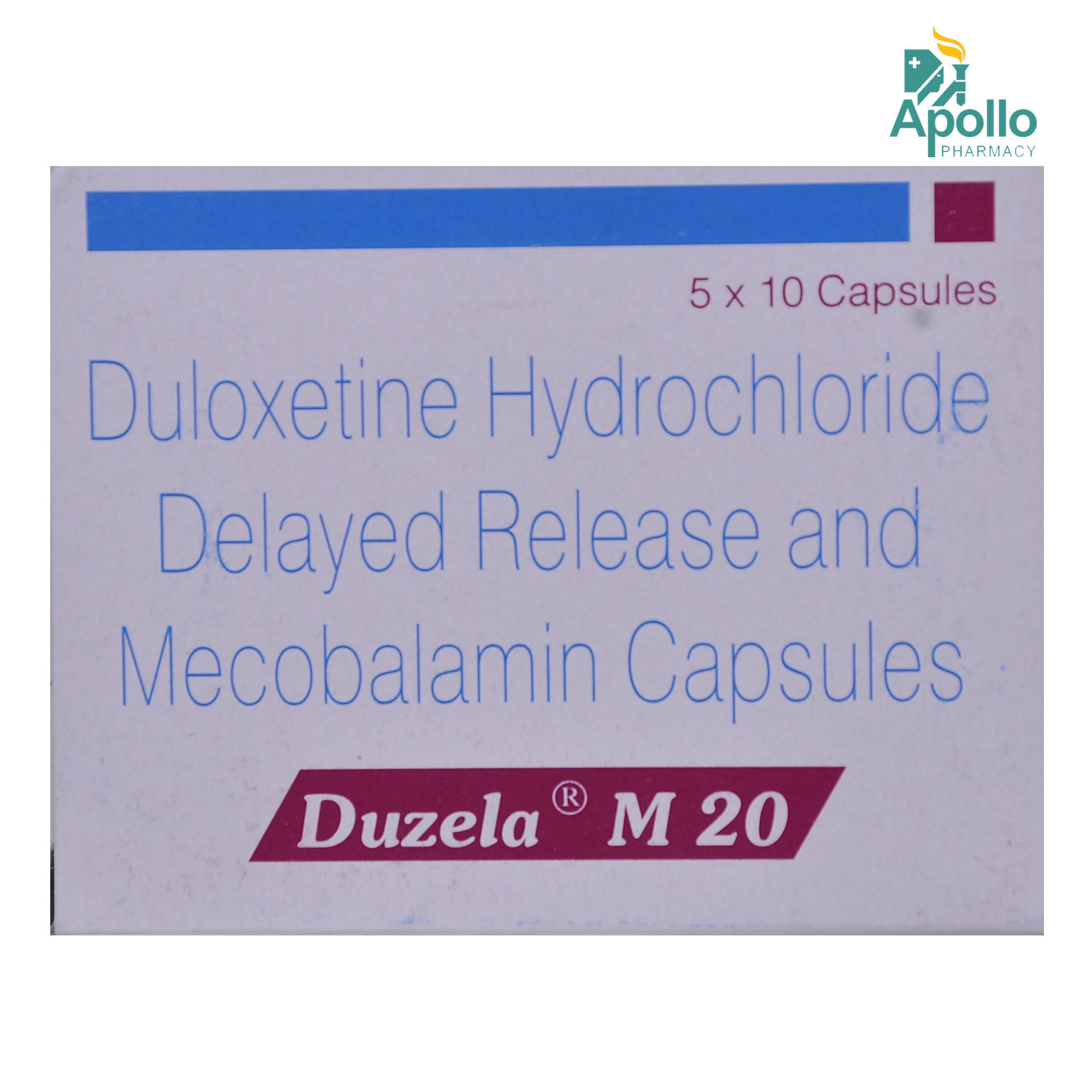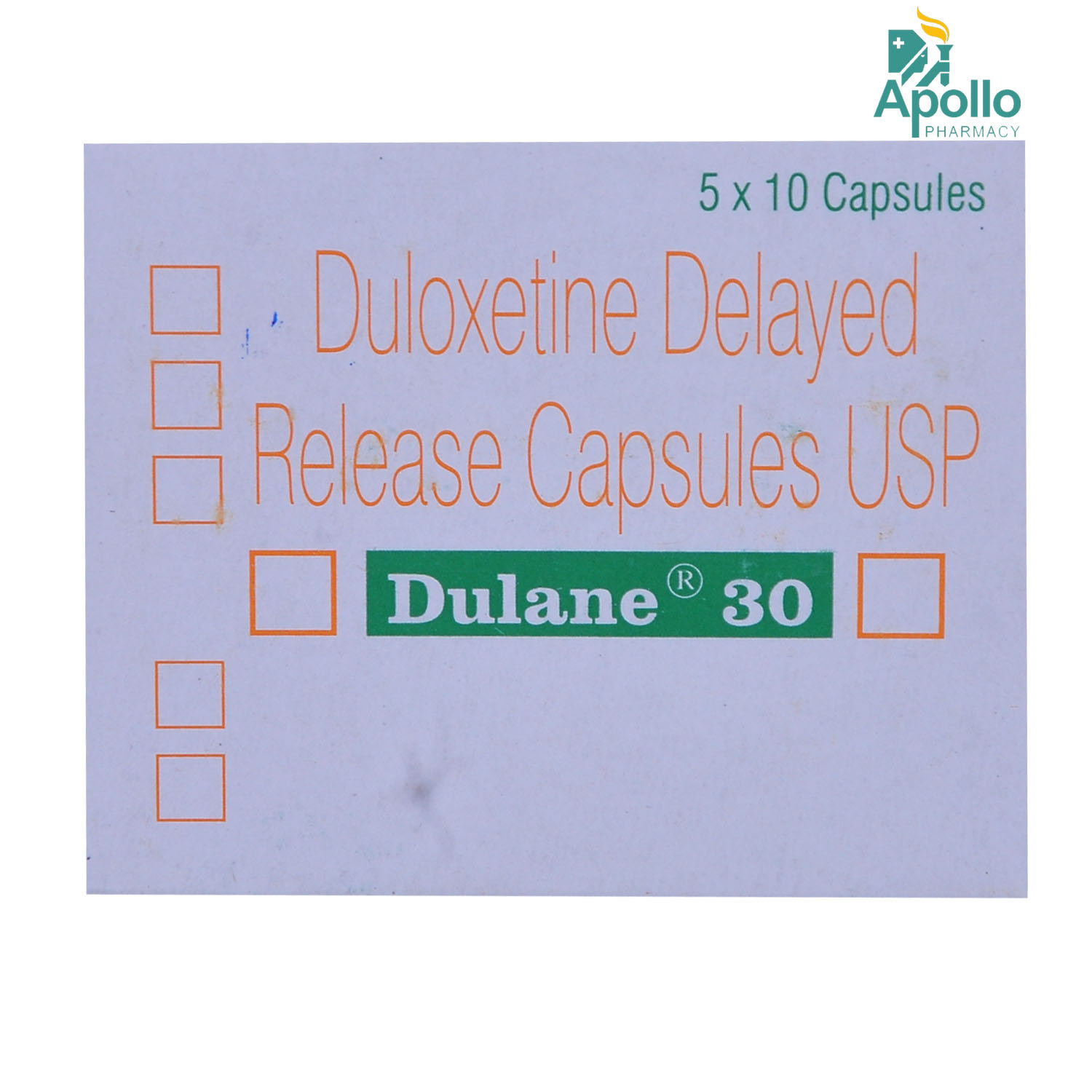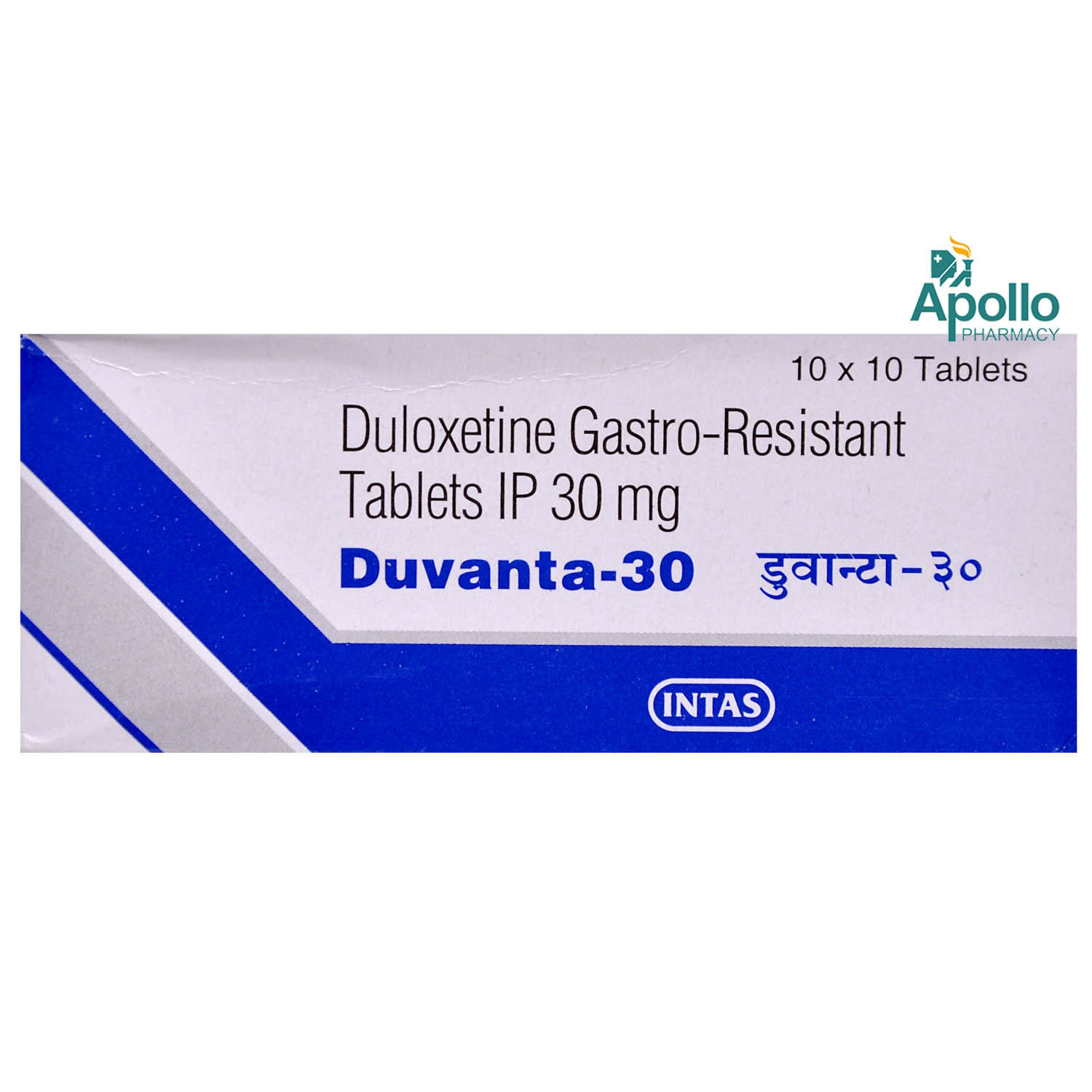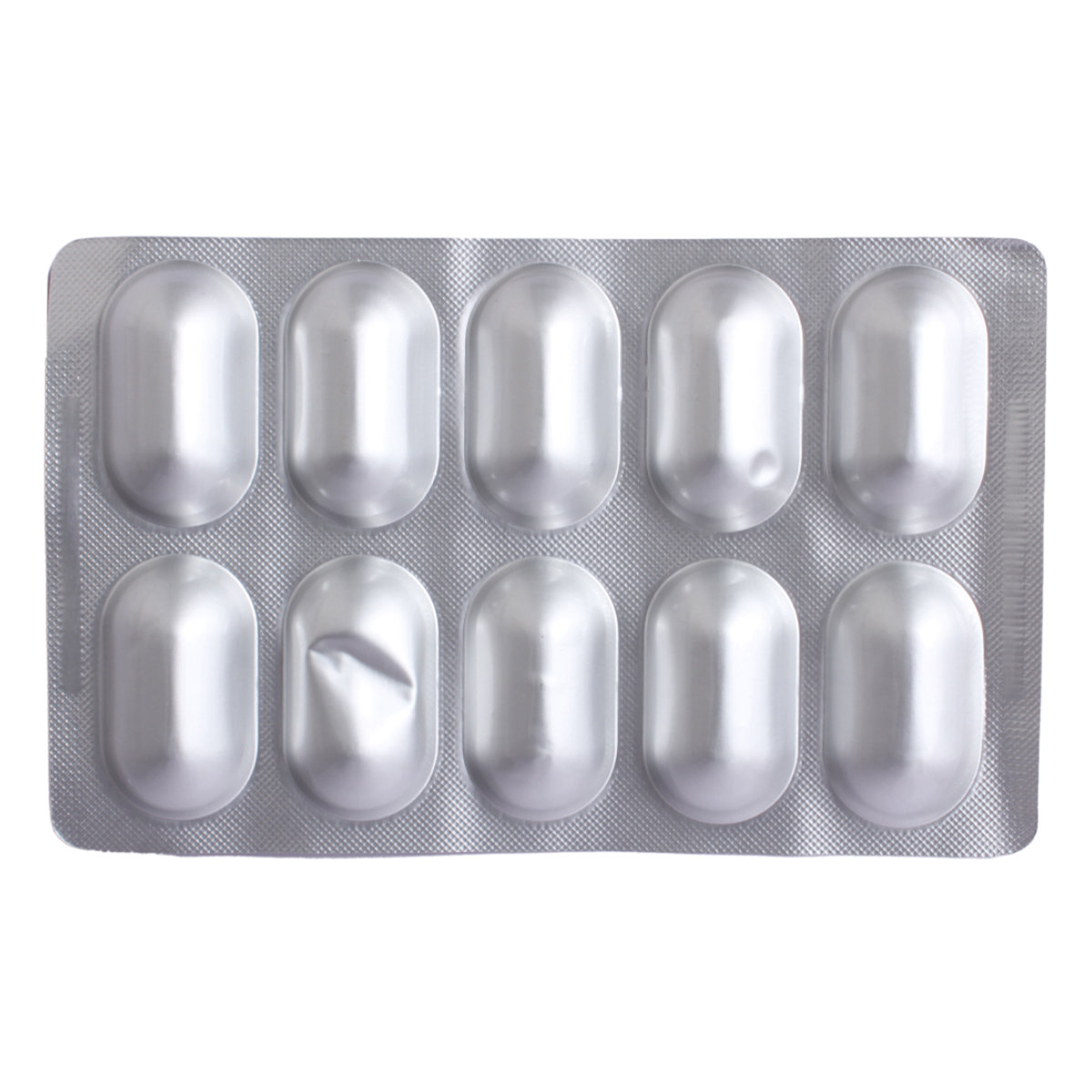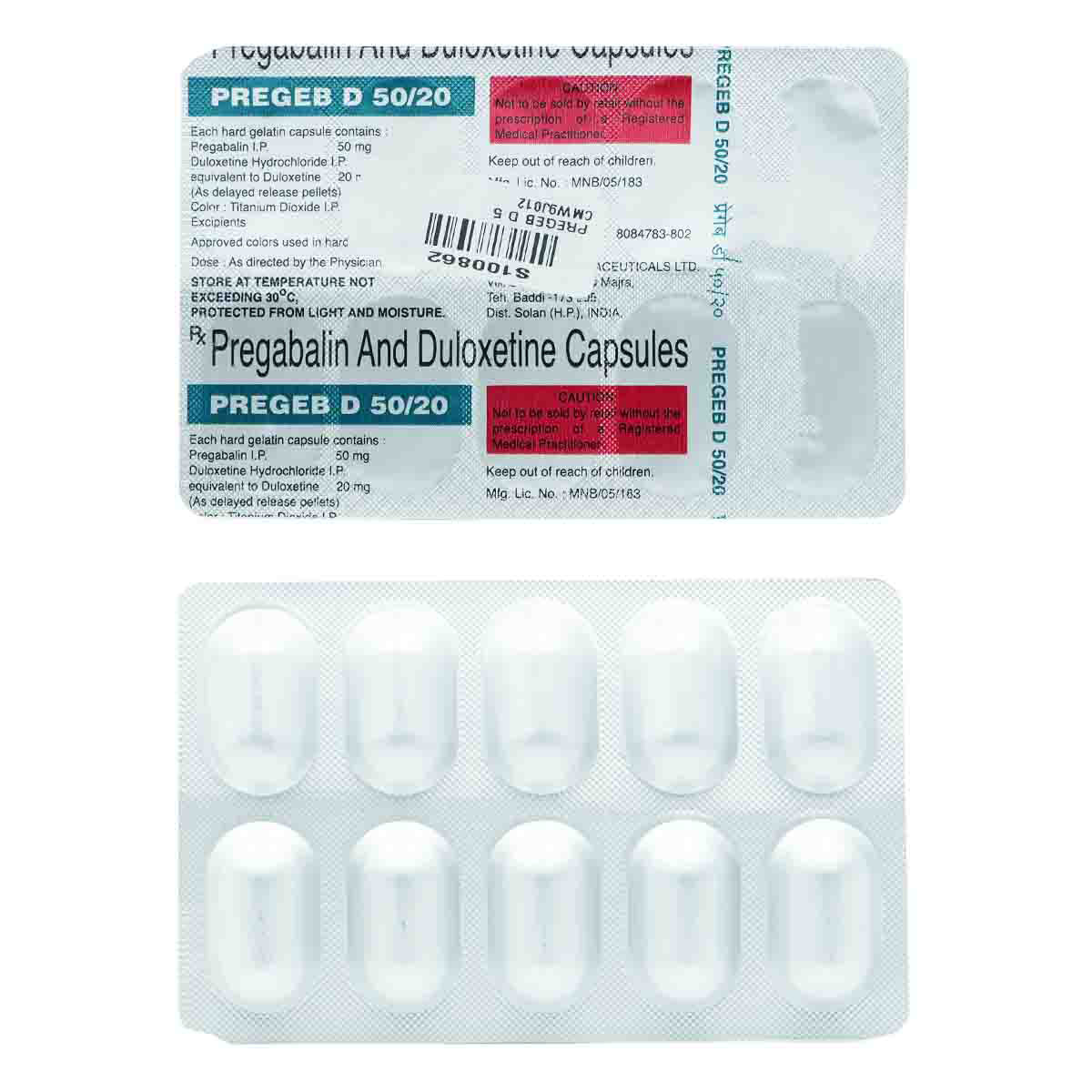Duloxetine
About Duloxetine
Duloxetine is primarily used for the treatment of depression and anxiety. It is also used to treat neuropathic pain, such as fibromyalgia associated with diabetic peripheral neuropathy, and can be used to treat stress urinary incontinence in women.
Duloxetine contains Duloxetine, which works by increasing the levels of mood-enhancing chemicals serotonin and noradrenaline in the brain. This helps improve mood, reduce negative emotions, support better sleep, and promote overall well-being.
Common side effects of the medicine include feeling sick, a dry mouth, headache, constipation and feeling sleepy. Most of these side effects do not require medical attention. However, talk to your doctor if you experience these side effects persistently.
If you are known to be allergic to any of the components in Duloxetine, please inform your doctor. Talk to your doctor if you are suffering from kidney, liver, or heart disease before taking Duloxetine. If you are pregnant or breastfeeding, please tell your doctor.
Uses of Duloxetine
• Management of Depression: Duloxetine is commonly prescribed to help alleviate symptoms of major depressive disorder, improving mood and emotional well-being.
• Anxiety Disorder Treatment: Duloxetine can be used to treat generalized anxiety disorder, helping to reduce feelings of excessive worry and anxiety.
• Chronic Pain Relief: Duloxetine is sometimes utilized in managing chronic pain conditions, such as fibromyalgia, by altering how the brain and nervous system respond to pain.
• Diabetic Neuropathy Management: Duloxetine is effective in treating neuropathic pain associated with diabetic neuropathy, providing relief to patients suffering from nerve-related pain.
• Stress Management: By addressing both anxiety and depressive symptoms, Duloxetine can support stress reduction and improve overall mental health, promoting better coping mechanisms.
Medicinal Benefits
- Duloxetine is used in the treatment of depression and anxiety disorders.
- It is also used to relieve nerve pain associated with diabetic neuropathy or chronic pain associated with arthritis or back pain.
- Duloxetine acts by restoring the balance of serotonin and norepinephrine, a natural chemical present in the brain. In this way, the drug improves mood, appetite, sleep, and energy levels in patients, promoting a sense of calmness.
- Duloxetine also can be used to treat stress urinary incontinence in women.
- It helps improve mood and reduce feelings of anxiety or sadness by balancing brain chemicals.
- It supports better sleep and helps manage emotional stress.
Directions for Use
- Duloxetine can be taken with or without food as advised by your doctor.
- Follow your doctor's instructions on the dosage and timing of this medication.
- Swallow Duloxetine as a whole with a glass of water.
- Do not crush, break, or chew it.
Storage
Side Effects of Duloxetine
- Difficulty sleeping
- Headaches
- Feeling dizzy
- Blurred vision
- Constipation
- Diarrhoea
- Feeling sick (nausea)
- Being sick (vomiting)
- Dry mouth
- Sweating
- Tiredness
- Less appetite
- Weight loss
- Feeling less interested in sex
- Erection issues
Medicines Containing this Salt
View AllDrug Warnings
- Avoid taking Duloxetine within 5 days before or 14 days after taking an MAO inhibitor such as rasagiline, selegiline, or linezolid, as it may result in serious drug interaction.
- Do not stop or reduce the dosage even if they start noticing an improvement in their condition without asking their doctor, as it may cause unpleasant symptoms, including vomiting, agitation, confusion, etc.
- Inform your doctor about heart problems, high blood pressure, liver or kidney disease, slow digestion, and seizures.
- You should tell your doctor if you are pregnant or breastfeeding.
- Avoid doing any hazardous activity as this medicine may cause sleepiness.
- Let your doctor know if you are taking any other medicines.
Drug Interactions
Drug-Drug Interactions: Inform your doctor if you are taking antiplatelet medications (such as clopidogrel or warfarin), non-steroidal anti-inflammatory drugs (NSAIDs, including ibuprofen), antibiotics (such as ciprofloxacin), or monoamine oxidase inhibitors (MAOIs, including linezolid).
Drug-Food Interactions: No interactions found.
Drug-Disease Interactions: Tell your doctor if you have manic-depression, suicidal thoughts, alcoholism, serotonin syndrome, closed-angle glaucoma, high blood pressure, orthostatic hypotension, or chronic inflammation of the liver.
Drug-Drug Interactions Checker List:
Safety Advice

Alcohol
unsafeTaking Duloxetine with alcohol may increase the side effects, such as confusion, drowsiness, and trouble concentrating. A few people may find it difficult to do mental tasks. Hence, limit the use of alcohol while being treated with this medicine.

Pregnancy
cautionDuloxetine is only recommended for use during pregnancy if advised by a doctor. This medicine increases the risk of deformities in infants, so one should tell their doctor if they are pregnant.

Breast Feeding
consult your doctorLet your doctor know if you are a nursing mother before taking Duloxetine; your doctor will decide whether Duloxetine can be taken by breastfeeding mothers or not.

Driving
unsafeDuloxetine can cause sleepiness or may affect a person's ability to drive so one should avoid driving or doing any work that needs clear attention.

Liver
unsafeDuloxetine is not recommended for use in patients with liver disease. Inform your doctor if you have any preexisting liver disease.

Kidney
unsafeDuloxetine is not recommended for use in patients dealing with severe kidney disease.

Children
cautionThe usage of Duloxetine is not recommended for children below seven years old. However, this medicine can be used in children above seven years after a doctor's recommendation.
Habit Forming
Diet & Lifestyle Advise
- Eat healthy foods that can improve your overall mood. The easiest way to do so is to cut out junk food. Avoid food high in saturated fats and include Omega-3s and omega-6-rich food such as fish, nuts, fresh fruits and vegetables, and olive oil in your diet.
- Neurotransmitters are responsible for keeping good mental health, so these neurotransmitters are made up of amino acids. Include amino acids in your diet as these foods play an important role in improving mental health.
- Exercise is the best way to relax the body as it helps the body to produce more antidepressants, which in turn alleviate depression.
- Losing weight is an important step that improves overall self-esteem and health, so if you are overweight, then try to lose weight and manage it according to body mass index.
- Meditation is the best way to relax the body and relieve stress.
- Try to do deep breathing exercises, which help to calm down your mind and let you sleep better.
- Lying awake in bed does not calm down the brain, so it is important to have a good night's sleep. Thus, take 7- 8 hours of sound sleep.
Patients Concern
Disease/Condition Glossary
Major depressive disorder: Major depressive disorder is a mental disorder that affects the mood, behaviour, and physical activities of a person. The common symptoms of depression include reduced interest in daily activities, changes in appetite, sudden weight loss or gain, changes in sleeping patterns, restlessness, slowed movement, and speech and tiredness.
Generalised anxiety disorder or GAD: Generalised anxiety disorder is a mental illness that makes a person worry more than normal. Common signs and symptoms of GAD include Fatigue, Shaking, restlessness, problems focusing, trouble sleeping, feeling jumpy or dizzy, nausea, vomiting, diarrhoea, or shortness of breath.
Diabetic neuropathy: In this condition, nerves of the body get damaged by the high blood sugar in the body. This condition especially affects the nerves of the legs and feet. The common symptoms of this disease include bloating, diarrhoea, constipation, heartburn, nausea, vomiting, and dizziness.
Fibromyalgia: Fibromyalgia is a long-term condition that causes musculoskeletal pain, followed by sleeping issues, fatigue, memory, and mood issues. It can start at any age and is more commonly seen in women than in men. The pain may be triggered by physical injury, hormonal change, or emotional trauma. The common symptoms of fibromyalgia include pain for at least three months, tiredness, trouble falling or staying asleep, shortness of breath, headaches, memory problems, difficulty concentrating, or anxiety.
FAQs
Duloxetine is primarily used for the treatment of depression and anxiety. Besides this, it is also used to treat neuropathic pain such as fibromyalgia associated with diabetic peripheral neuropathy and can be used to treat stress urinary incontinence in women.
Duloxetine works by increasing the amount of mood-enhancing chemicals serotonin and noradrenaline in the brain.
Although Duloxetine is not addictive in nature, taking it higher or for prolonged use may cause drug dependence. Thus, one should only take this medicine for the time suggested by the doctor. Do not try to increase the dose for fast results, as it may worsen the side effects.
No, the person having a liver problem facing us, symptoms like itching, dark urine, right-sided upper stomach pain, and jaundice is not allowed to use this medicine.
Duloxetine has been used safely for a long time. Long-term negative effects are not present.
Report it to your doctor on an urgent basis, as they will either change the dosing strength or change the medicine.
The use of Duloxetine is restricted if a patient has used an MAO inhibitor (Selegiline, etc) within 5 days before or 14 days after, as it may result in serious drug interaction.
There is no evidence to suggest that duloxetine will reduce fertility in either men or women. But speak to your doctor before taking it if you are trying to get pregnant.
If you have been feeling better for six months or more, your doctor may suggest coming off Duloxetine. Your doctor will probably recommend reducing your dose gradually over several weeks or longer if you have been taking Duloxetine for a long time. This is to help prevent any extra side effects you might get as a reaction to coming off the medicine.
Duloxetine usually takes 2 to 4 weeks to work.
A person taking Duloxetine is not allowed to stop or reduce the dosage even if they start noticing an improvement in their condition without asking their doctor.
Duloxetine is generally considered to be non-addictive; however, the drug can cause physical dependence.
Stopping Duloxetine abruptly may result in the following withdrawal symptoms: irritability, nausea, feeling dizzy, vomiting, nightmares, headache, and/or paresthesias (prickling, tingling sensation on the skin).
Using warfarin together with Duloxetine can cause you to bleed more easily.
Duloxetine is safe to take for a long time. There are not any long-term side effects. If you have been feeling better for six months or more, your doctor may suggest coming off duloxetine.
It is possible that duloxetine increases your blood pressure. Although this is not a common adverse effect, some people may suffer high blood pressure when using this medicine. If you observe a significant rise in your blood pressure while taking duloxetine, you should visit your doctor. They can evaluate your specific circumstances and recommend the best course of action.
Common side effects of Duloxetine include feeling sick, dry mouth, headache, constipation and feeling sleepy. Most of these side effects of Duloxetine do not require medical attention and gradually resolve over time. However, if the side effects are persistent, reach out to your doctor.
Serious adverse effects of duloxetine are uncommon; however, they can include allergic reactions, increased bleeding risk, and mania. If you suffer any major adverse effects, please immediately seek medical attention.
The suggested Duloxetine dosage is determined by your unique needs and the condition being treated. Your doctor can provide personalized advice.
Duloxetine is generally considered safe for most individuals, although it may not be appropriate for everyone. Pregnant women, children, and people with certain medical conditions should consult a doctor before using duloxetine.
Taking Duloxetine along with alcohol may increase the side effects such as confusion, drowsiness, and trouble concentrating. A few people may find it difficult to do mental tasks. A person needs to limit or avoid the use of alcohol while being treated with this medicine.
The use of Duloxetine is not allowed in children under seven. However, this medicine can be used in children over seven after a doctor's recommendation.
